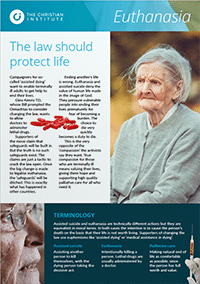The Director of Public Prosecutions says it is not for prosecutors to decide if the law on assisted suicide should be changed.
Sir Ken MacDonald, QC, was speaking in anticipation of a high court decision about whether he should be forced to issue guidance clarifying the law.
The case was launched by Multiple Sclerosis sufferer Debbie Purdy, who wants to know if her husband will be prosecuted if he helps her travel to the Dignitas suicide clinic in Switzerland to end her life.
“There is a sense in which people are looking to prosecutors to change the law”, Sir Ken told The Times.
“We can’t do that. It would be unlawful, and would undermine the rule of law.
“If the law is going to be changed, it has to be changed by Parliament.”
Although the Crown Prosecution Service (CPS) has not prosecuted anyone who accompanied a relative to the Dignitas clinic, he said that there were “arguments on both sides”.
“The danger always is that vulnerable people are encouraged to do something they would otherwise not do,” he cautioned.
A leading specialist in palliative care, Dr David Jeffrey, recently said that the legal ban on assisted suicide was vital for protecting vulnerable people.
“My concern is with people who are frightened, possibly depressed and bit confused,” he said.
Last week Baroness Warnock, whose recent comments on dementia sufferers’ “duty to die” have prompted widespread criticism, defended the parents of paralysed rugby player Daniel James after they took him to the Dignitas clinic to end his life.
But Paddy Masefield, Patron of the Coalition of Disabled People, wrote in a letter to The Observer yesterday that Lady Warnock’s was an “extraordinarily subjective view”.
He wrote: “Easier access, as Mary Warnock suggests, for similar assisted suicides will leave us all culpable for even greater losses that may prove much harder to live with than the experience of disability itself.”

